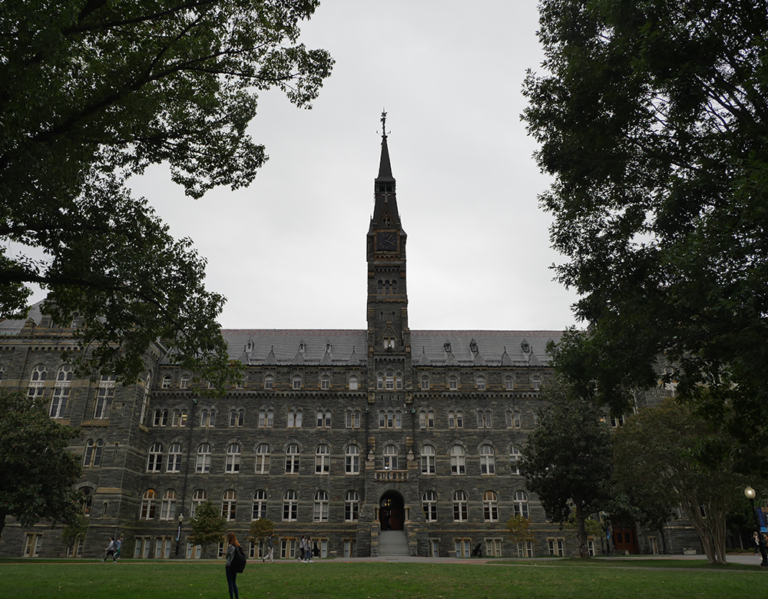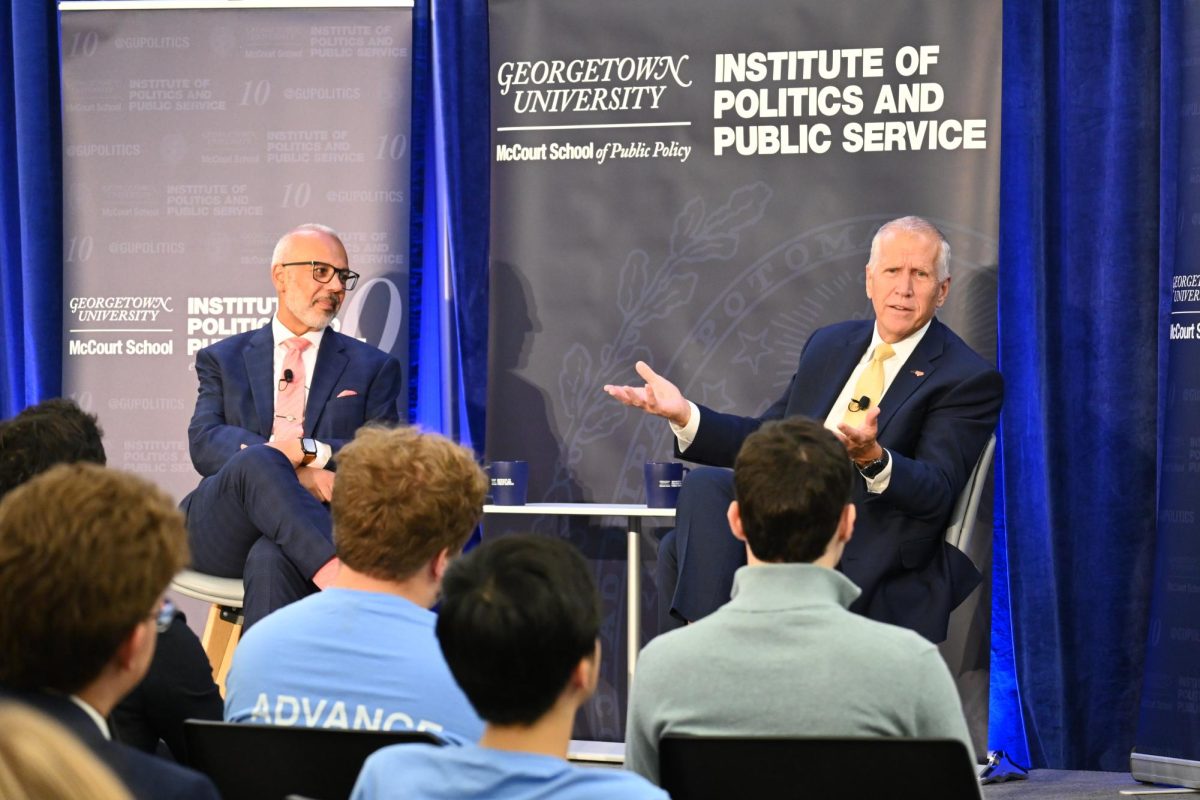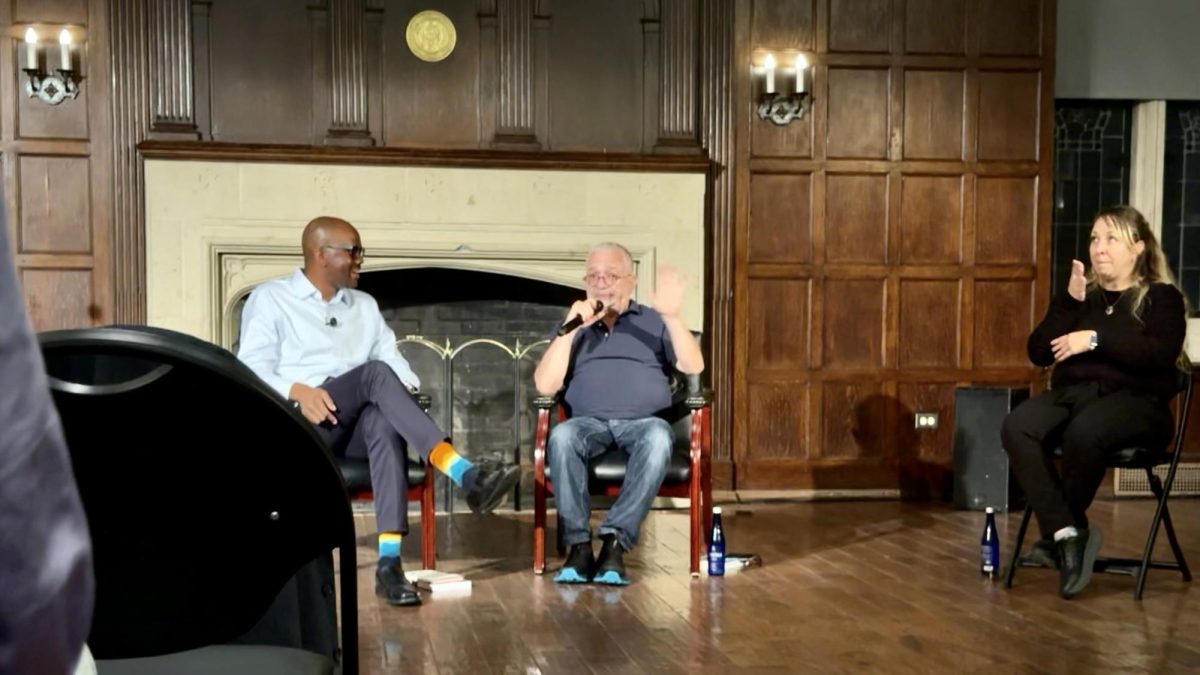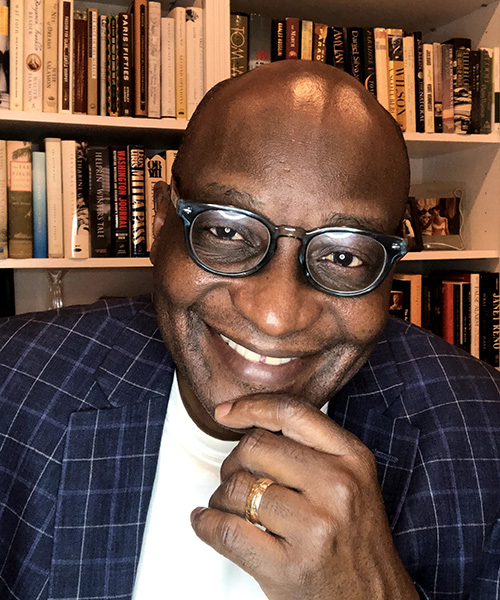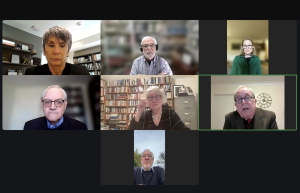
Political analysts, public officials and journalists warned about the risks President-elect Donald Trump poses to the United States’ institutions and political environment during a virtual panel Nov. 13.
Sanford J. Ungar, director of Georgetown University’s Free Speech Project, moderated the panel — titled “What Just Happened in America, and How Will the World React?” — to assess the consequences of the presidential election and Trump’s agenda. The panel was the latest installment of this year’s “Free Speech at the Crossroads: International Dialogues” series co-sponsored by the Free Speech Project and the Future of the Humanities Project, a collaboration between Georgetown and the University of Oxford that examines the intersection of humanities and public life.
E. J. Dionne Jr., a columnist for The Washington Post and professor of public policy at Georgetown; Susan Eisenhower, a national security analyst; Barbara K. Bodine, the former U.S. ambassador to Yemen and professor in the practice of diplomacy; John Battle, former cabinet minister in the United Kingdom’s Labour Party; and Elan Closs Stephens, an electoral commissioner in Wales, served as panelists.
Dionne said Trump, who campaigned on right-wing issues including mass deportation of immigrants, high tariffs on imported goods and the rollback of welfare policy, has picked officials to execute his promises.
“Trump looks like he intends to govern as he told us he would govern,” Dionne said during the event. “I do think it’s particularly concerning that it’s barely a week out and he’s telling the Senate to dispense with the usual constitutional order.”
Most presidential appointees have to be confirmed by the Senate, but Trump has demanded the Senate go into recess so he can use a constitutional provision that would allow him to appoint officials without congressional approval. The recently elected majority leader of the Senate, Sen. John Thune (R-S.D.), expressed support for Trump’s request.
Bodine said that while she would not panic about the upcoming election, she is wary about the results and what it means for the country.
“Deep concern is a valid reaction, in part because we’ve seen the Trump movie before — and sequels are generally not as good as the original,” Bodine said during the event.
Bodine said Trump’s presidency could erode traditional institutional checks and balances, especially since he views the election results as a mandate to rule unchallenged.
“There aren’t going to be the guardrails that we had last time, however insufficient and battered and routinely fired they were,” Bodine said. “Trump has said he intends to weaponize the Department of Justice.”
Bodine added that Trump’s promise to remove career officials from the executive branch would reduce institutional and factual checks on his power.
“As a career servant, we do not try to sabotage what the president tries to do, but our job has always been to speak truth,” Bodine said. “If people are either fired or silenced or afraid, you’re not going to have a fact-based, analysis-based consideration of policy. That’s a 2 million-person guardrail that could go away.”
Eisenhower — who identifies as an independent voter — said Democrats failed to reach the sizable nonpartisan electorate by focusing on the threat Trump poses rather than engaging with voters’ concerns.
“Democrats, as far as I’m concerned, need to get their act together,” Eisenhower said during the event. “I think one of the reasons Vice President Harris failed is: Why were we having a campaign around joy? There wasn’t a joyful person in the United States of America during this election.”
“It turned out tone deaf,” Eisenhower said. “One of the big challenges for the Democratic Party is to find someone who can replace her, who can begin to craft a message that is strong and powerful to take back those constituencies that left.”
Dionne said the working-class shift to the Republican Party heavily influenced the results, adding that many working-class areas abandoned Democrats for the first time in decades.
“Even though, paradoxically, Joe Biden did quite a lot of good things for working class, blue collar people, this did not penetrate all the way down,” Dionne said.
Dionne said that while he hopes Republicans will move on from Trump, he doubts the party will deradicalize enough to resist their leader’s most extreme positions.
“The fact that Trump can’t run for reelection might begin to give some Republicans a little bit of room in their own heads that they have to start worrying about the world after Trump, not the world under Trump,” Dionne said.
“I’ve got to say, in the short run, I’m not terribly optimistic,” Dionne said.



